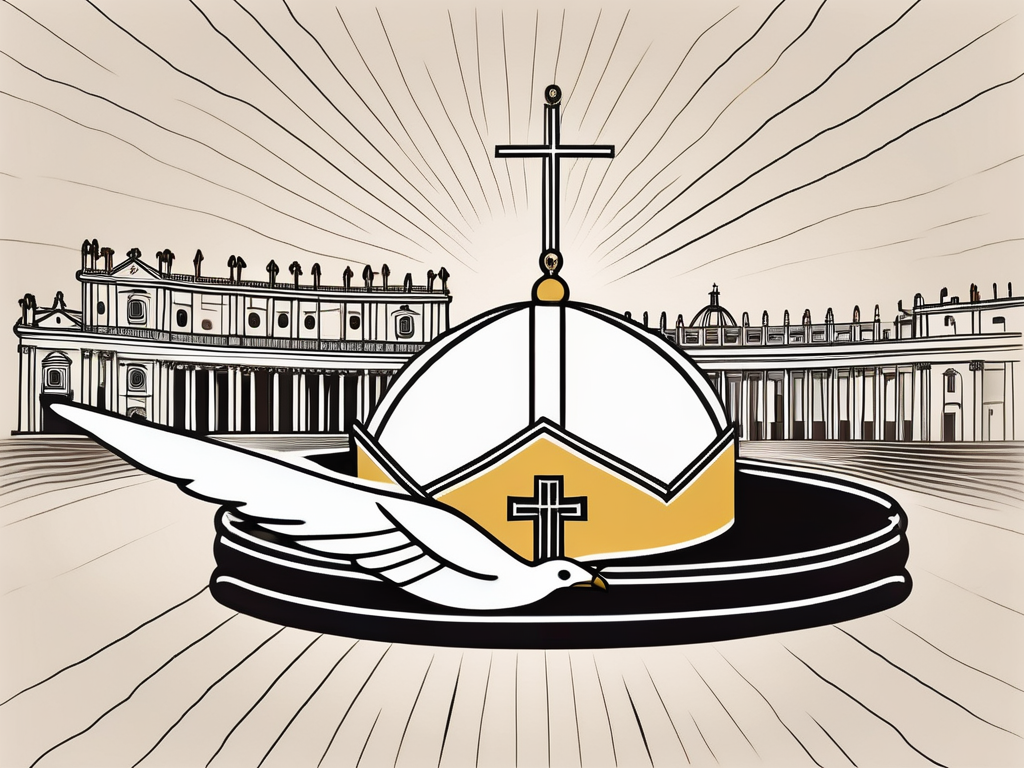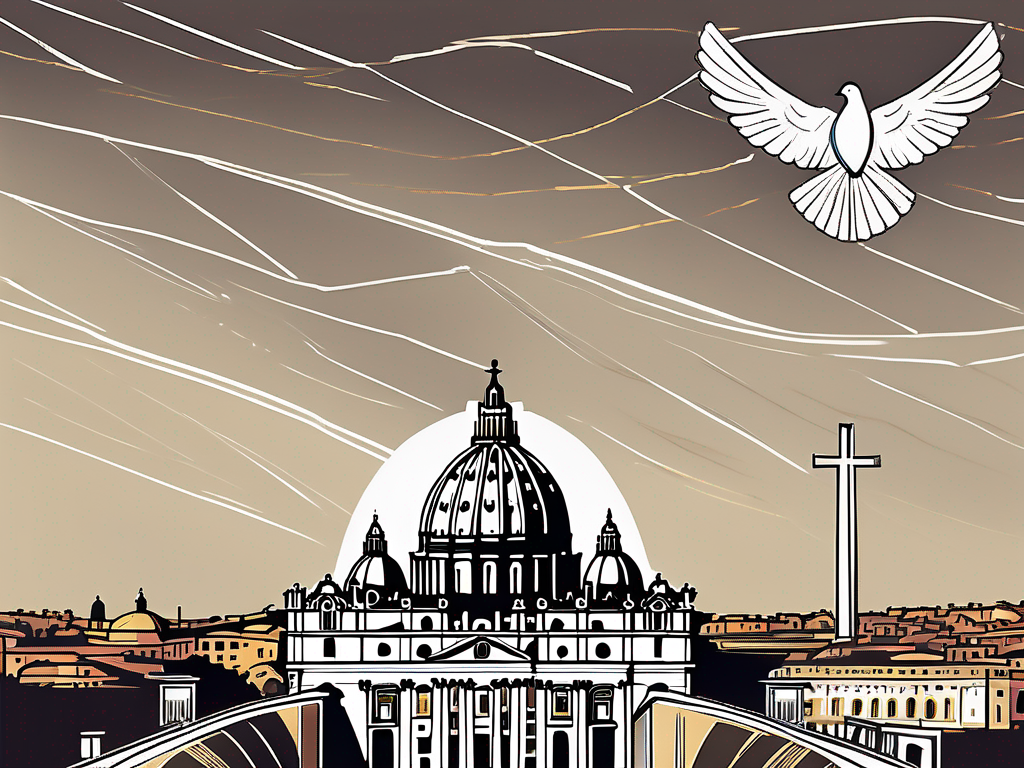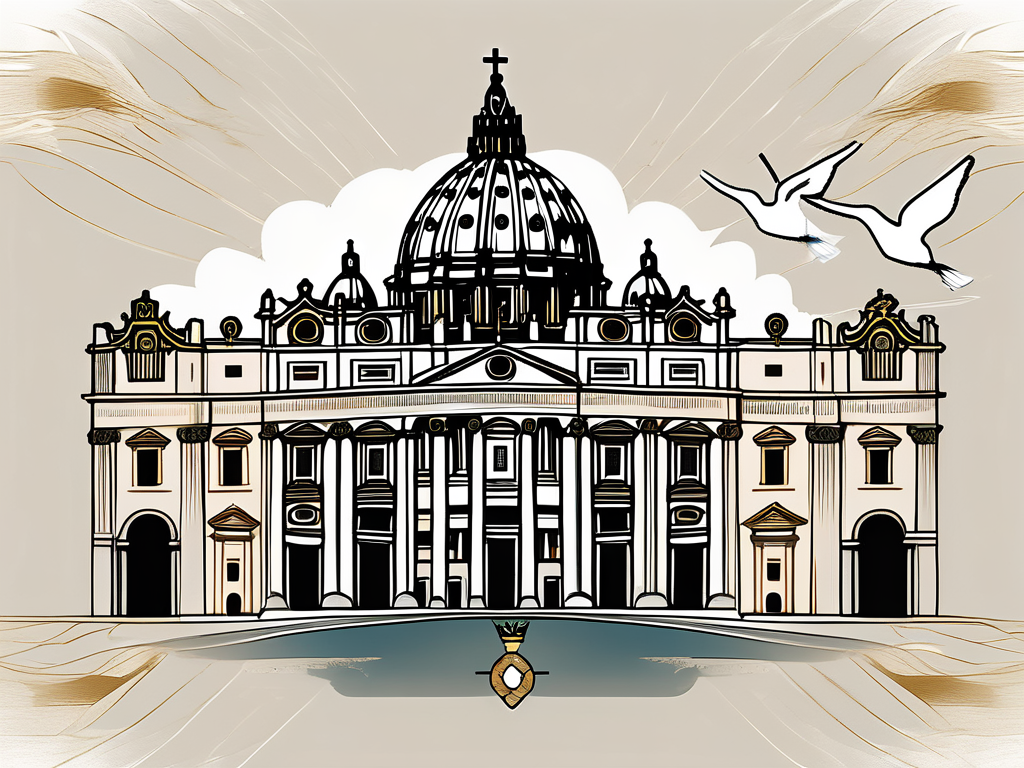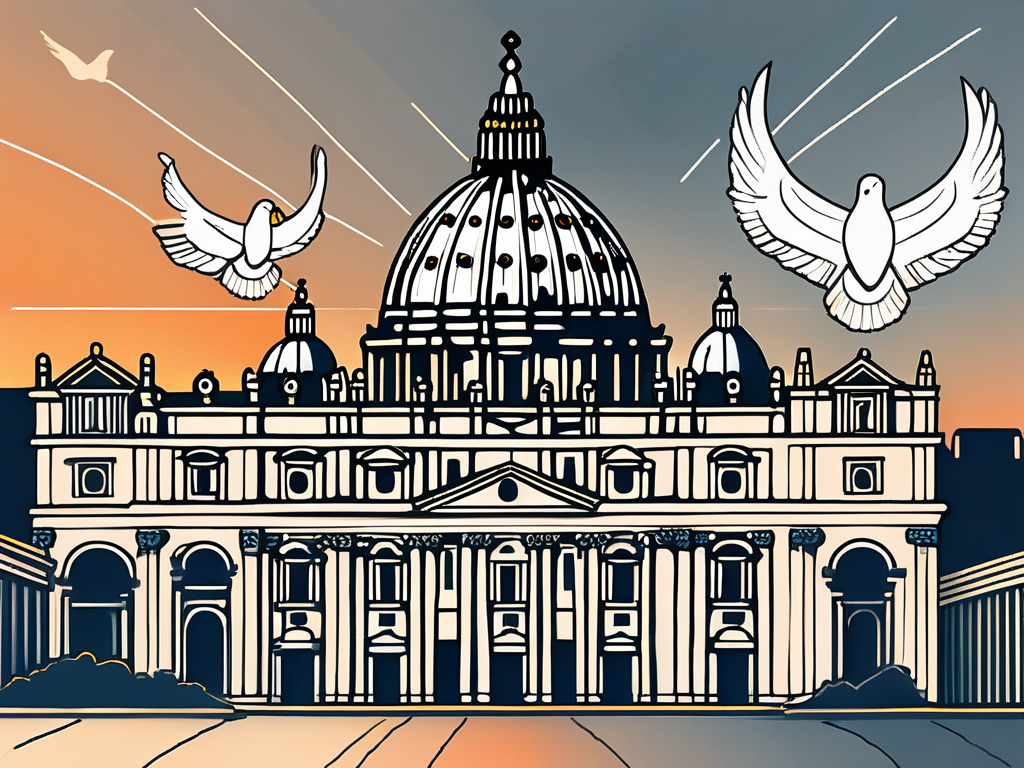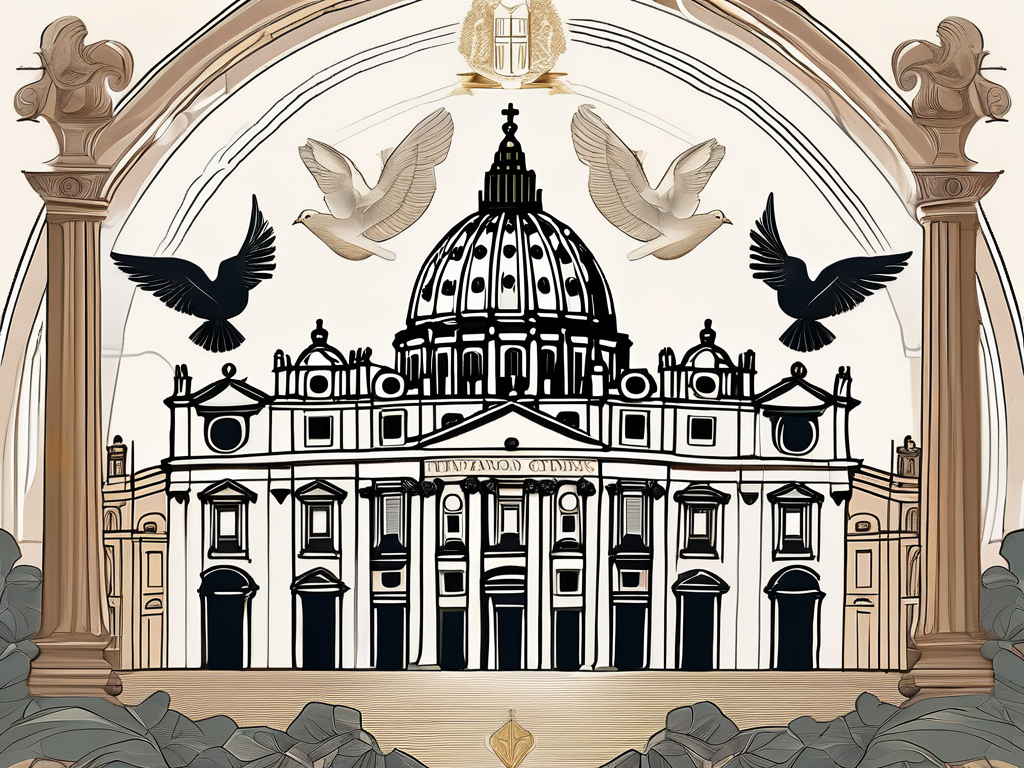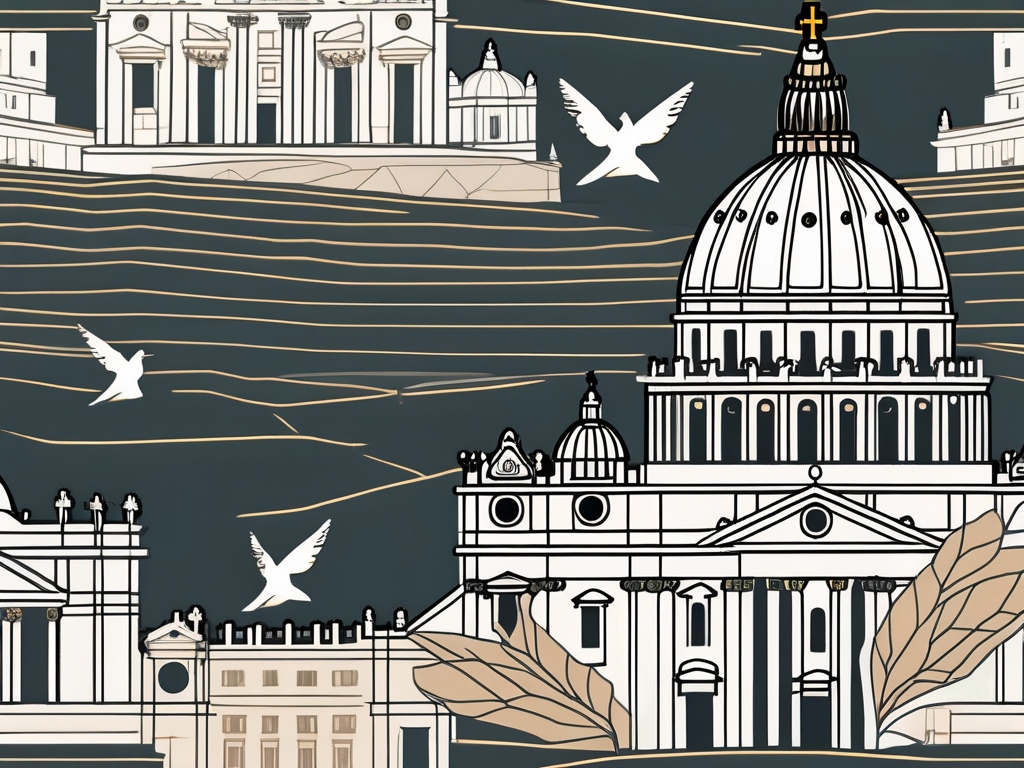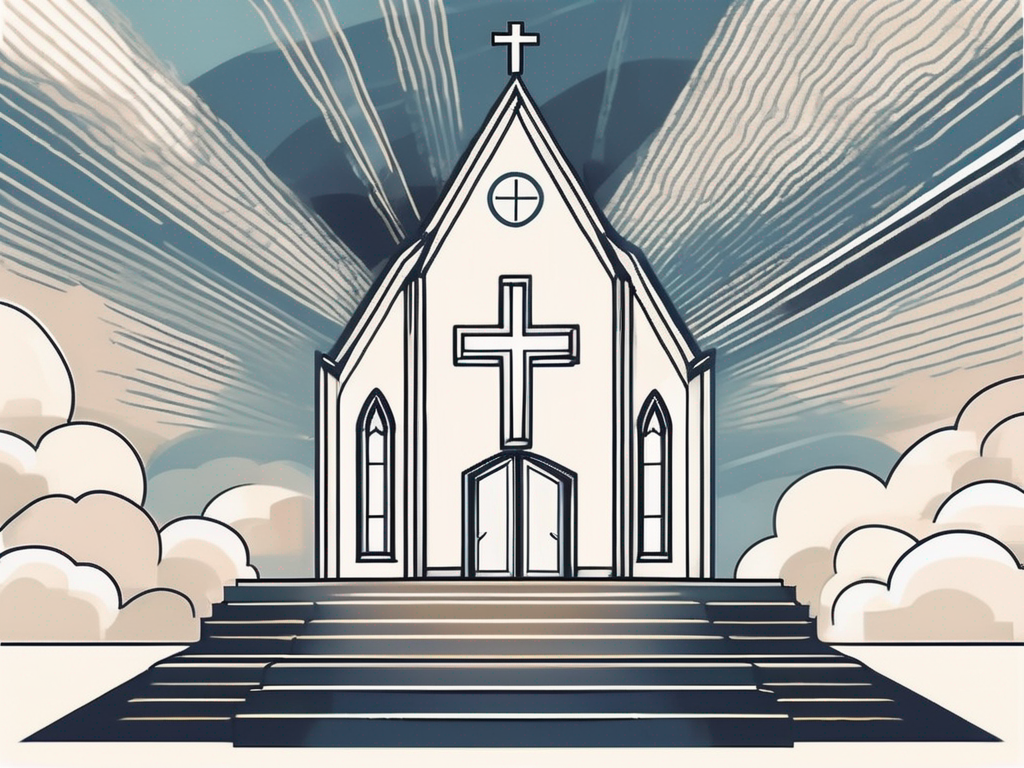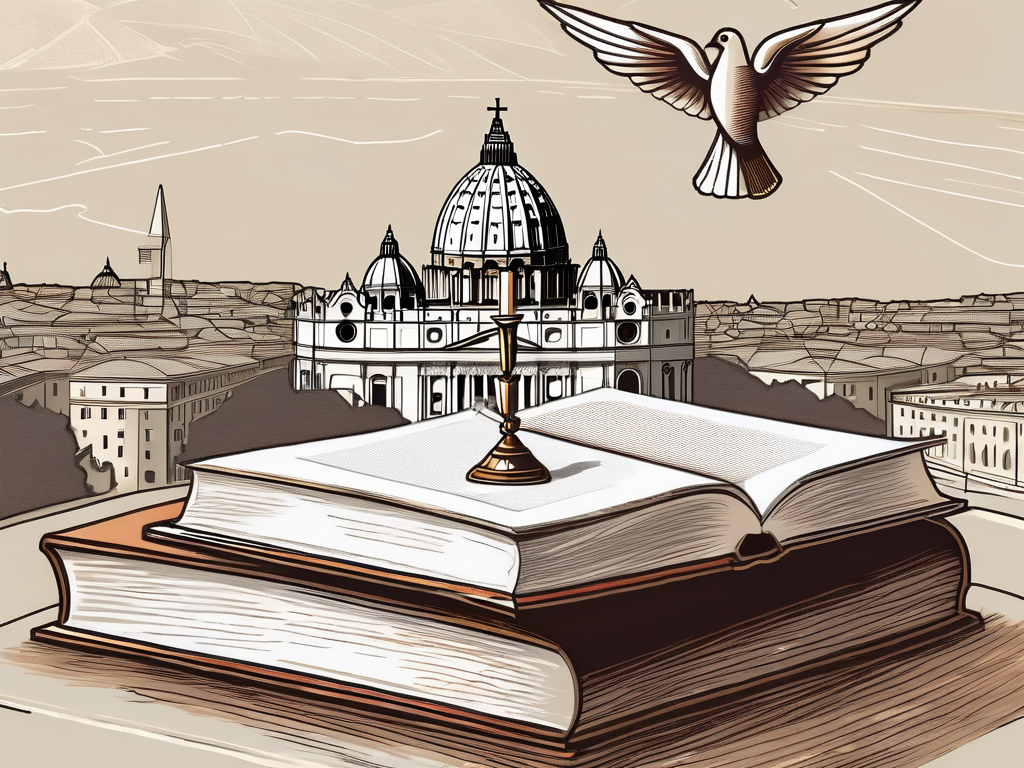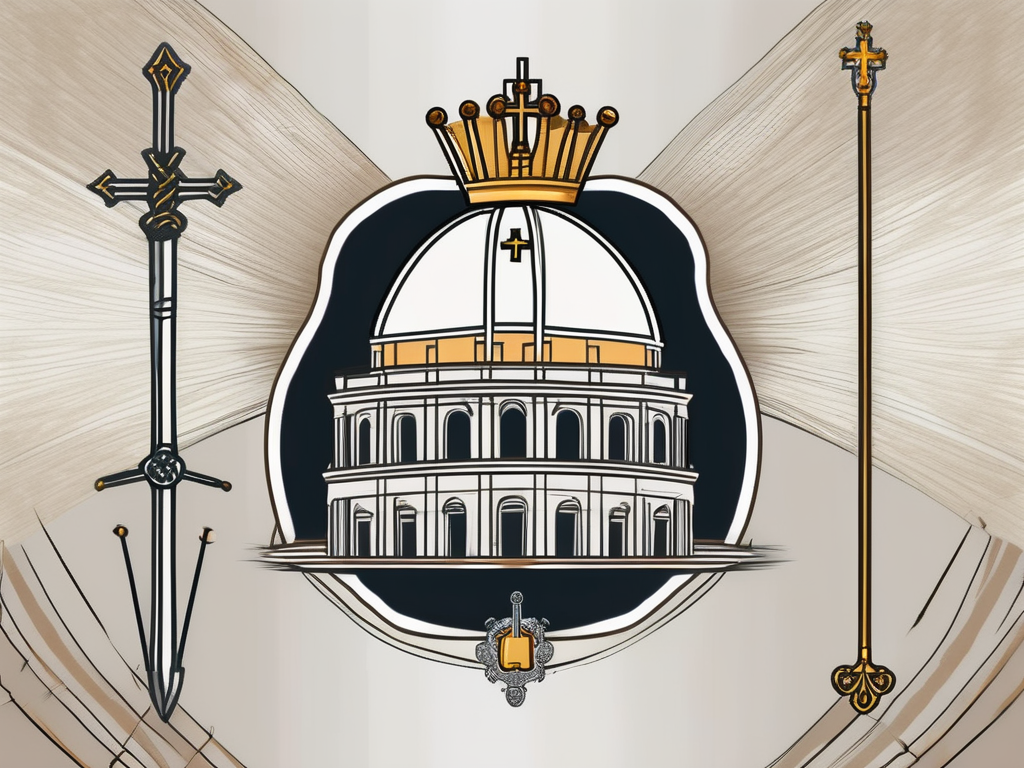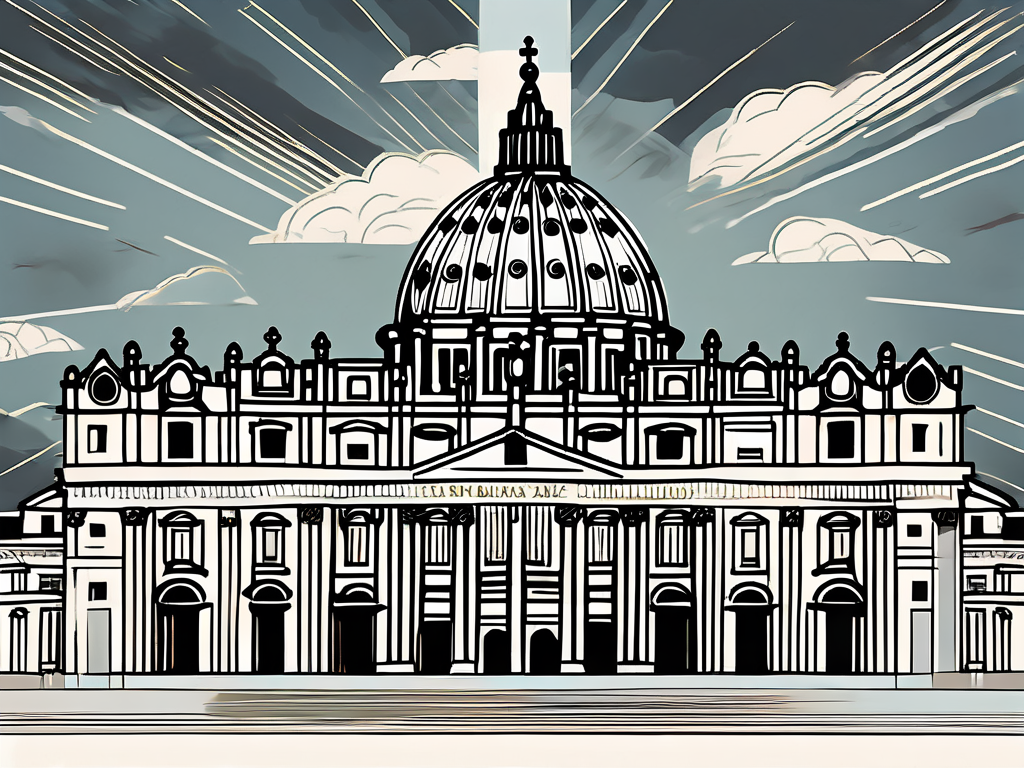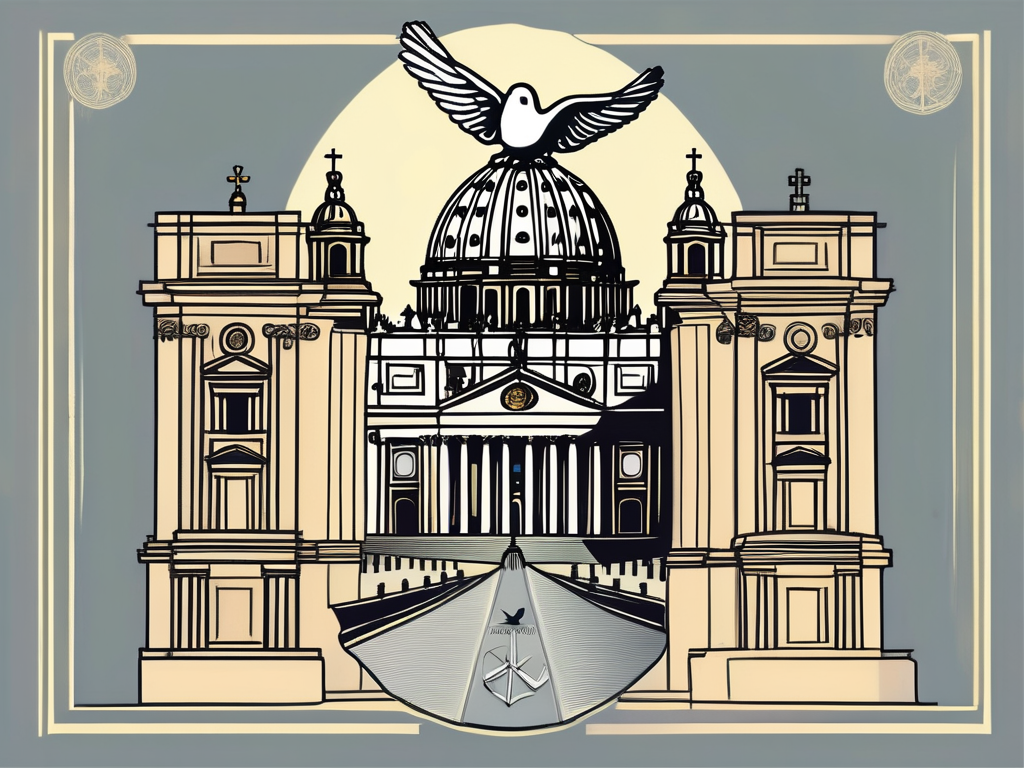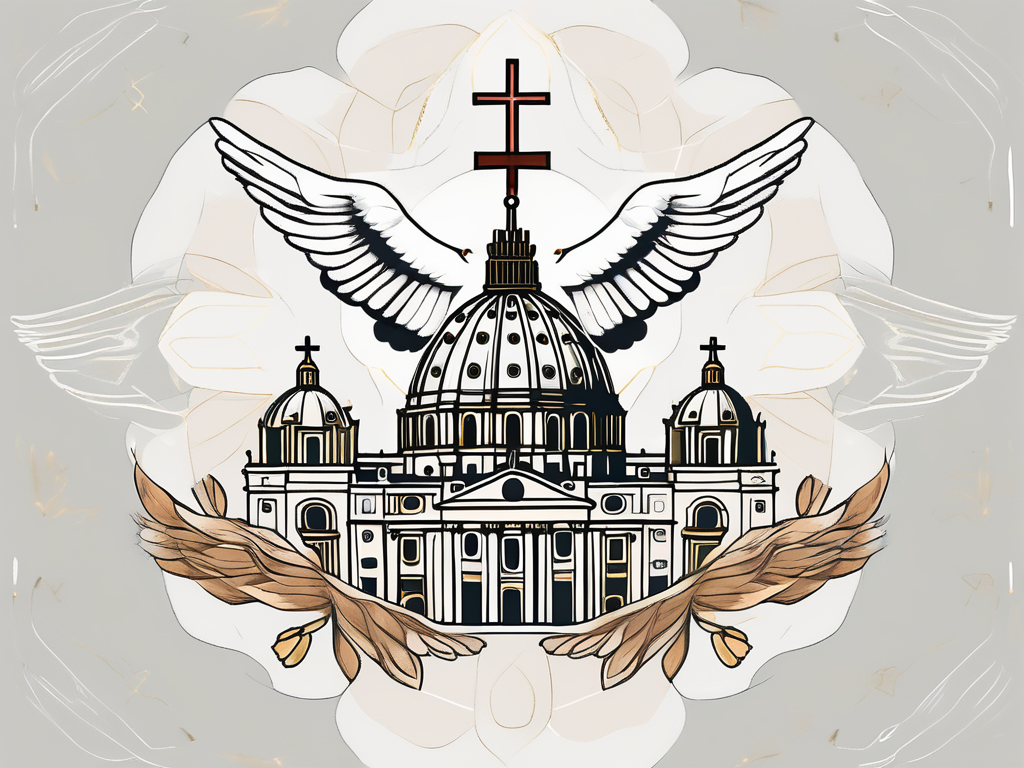Pope Gregory VIII, also known as Gregory the Great, was a significant figure in the history of the Catholic Church. From his early life and education to his ascension to the papacy, Gregory’s journey was filled with challenges and remarkable achievements that left a lasting impact on the Church and the world.
Early Life and Education of Pope Gregory VIII
Pope Gregory VIII, whose birth name was Gregory, was born into a devout Christian family and was raised with strong religious values. His birth and family background played a crucial role in shaping his beliefs and later his contributions to the Church.
Birth and Family Background
Gregory was born into a noble family in Rome in the year 540. His parents, Marcus and Julia, were devout Christians who instilled in him a deep sense of faith and devotion from an early age. Growing up, Gregory was surrounded by the teachings and traditions of the Church, which greatly influenced his path towards priesthood.
His father, Marcus, was a respected senator in Rome and known for his unwavering commitment to the Christian faith. He often took young Gregory to church and encouraged him to actively participate in religious ceremonies and rituals. Gregory’s mother, Julia, was a compassionate and charitable woman, known for her acts of kindness towards the less fortunate. She taught Gregory the importance of serving others and living a life of humility.
As a child, Gregory was exposed to the rich tapestry of Christian traditions and practices. He witnessed the celebrations of Easter, Christmas, and other important religious festivals, which left a lasting impression on his young mind. These experiences deepened his understanding of the faith and fueled his desire to dedicate his life to the service of God.
Education and Early Religious Influences
Recognizing Gregory’s intellectual potential and his strong inclination towards spirituality, his parents ensured that he received a well-rounded education, with a strong focus on religious studies. He studied grammar, rhetoric, and Latin, laying a solid foundation for his future endeavors.
Gregory’s thirst for knowledge led him to explore the works of various theologians and philosophers. However, it was the writings of Saint Augustine that profoundly impacted his theological beliefs. Gregory found solace and guidance in Augustine’s teachings, particularly his emphasis on the importance of grace, faith, and the pursuit of truth.
During his formative years, Gregory also had the opportunity to learn from renowned scholars and theologians who visited Rome. He engaged in lively debates and discussions, further expanding his understanding of theology and strengthening his conviction to serve the Church.
As Gregory delved deeper into his studies, he began to develop his own theological perspectives, blending the teachings of Augustine with his own insights and experiences. His unique approach to theology would later shape his leadership style as Pope and influence his decisions regarding the Church’s doctrine and practices.
In conclusion, Pope Gregory VIII’s early life and education were marked by a strong foundation in faith, a nurturing family environment, and a rigorous pursuit of knowledge. These formative years laid the groundwork for his future role as a spiritual leader and his lasting impact on the Church.
Ascension to Papacy
After years of serving the Church in various capacities, Gregory’s dedication and wisdom caught the attention of his peers. He quickly rose through the ranks and eventually found himself in one of the most revered positions within the Catholic Church.
Gregory’s journey to the papacy was a testament to his unwavering commitment to the Church. From his early days as a humble deacon to his role as the papal ambassador to the imperial court of Constantinople, he demonstrated exceptional diplomatic skills and theological knowledge that earned him respect and recognition among his colleagues.
Early Church Career
Prior to becoming Pope, Gregory held several important positions within the Church. His journey began as a deacon, where he diligently served the faithful and immersed himself in the teachings of the Church. His passion for spreading the Gospel and his unwavering faith soon caught the attention of his superiors.
Recognizing his potential, Gregory was appointed as the papal ambassador to the imperial court of Constantinople. This role allowed him to engage with influential figures and navigate the complexities of diplomacy. Gregory’s ability to bridge the gap between the Church and the imperial court showcased his exceptional skills as a mediator and peacemaker.
During his time in Constantinople, Gregory immersed himself in theological studies, further deepening his understanding of the Church’s teachings. His dedication to scholarship and his ability to articulate complex theological concepts earned him the admiration of his peers and the respect of the imperial court.
Election and Papal Investiture
In the year 590, Gregory’s tireless efforts and unwavering commitment to the Church culminated in his election as the Bishop of Rome. With overwhelming support from his fellow clergy, he assumed the title of Pope Gregory VIII, marking the beginning of a transformative era for the Catholic Church.
Gregory’s papal investiture was a momentous occasion, filled with solemnity and reverence. As he donned the papal vestments, he embraced the weight of his new responsibilities with humility and grace. Aware of the challenges that lay ahead, he dedicated himself to leading the Church with wisdom, compassion, and a deep sense of devotion.
Under Gregory’s leadership, the Church experienced a period of significant change. His papacy was marked by a renewed focus on spiritual growth, social justice, and the expansion of the Church’s influence. Through his teachings and writings, Gregory sought to guide the faithful towards a deeper understanding of their faith and a closer relationship with God.
Gregory’s ascension to the papacy was not only a personal achievement but also a testament to his unwavering faith and dedication to the Church. His legacy continues to inspire generations of clergy and faithful alike, reminding us of the transformative power of humble service and unwavering commitment to God’s calling.
Key Decisions and Actions as Pope
As Pope, Gregory VIII made a series of crucial decisions and undertook numerous actions that shaped the Catholic Church and left a lasting impact on the faithful.
Gregory VIII’s tenure as Pope was marked by a remarkable dedication to strengthening the Church’s presence and influence in various parts of the world. Recognizing the importance of diplomacy, he engaged in numerous diplomatic endeavors, forging alliances with neighboring states and fostering unity among the faithful. His tireless efforts not only solidified the Church’s position but also ensured that the voice of Catholicism was heard and respected on a global scale.
However, Gregory’s contributions extended far beyond diplomatic achievements. He recognized the need for administrative reforms within the Church to enhance its efficiency and transparency. With this in mind, he implemented a series of measures that streamlined the Church’s operations, making it more responsive to the needs of the faithful. These reforms not only improved the functioning of the Church but also set a precedent for future Popes to follow, ensuring the continued growth and success of the Catholic Church.
Diplomatic Endeavors and Reforms
One of Gregory’s key priorities as Pope was to strengthen the Church’s presence and influence in various parts of the world. He engaged in diplomatic endeavors, strengthening alliances with neighboring states and fostering unity among the faithful. His diplomatic skills were unparalleled, and he successfully navigated complex political landscapes to ensure that the Church’s interests were protected and advanced.
Gregory’s commitment to diplomacy was not limited to political alliances alone. He recognized the importance of interfaith dialogue and worked tirelessly to promote understanding and cooperation between different religious communities. His efforts in this regard were instrumental in fostering peaceful coexistence and mutual respect among people of different faiths.
Additionally, Gregory’s administrative reforms played a crucial role in enhancing the efficiency and transparency of the Church’s operations. He introduced standardized procedures and protocols, ensuring that the Church’s resources were utilized effectively and responsibly. These reforms not only improved the day-to-day functioning of the Church but also instilled a sense of accountability and trust among the faithful.
Religious Teachings and Decrees
Pope Gregory VIII was known for his exceptional theological knowledge and ability to articulate complex concepts in a relatable manner. He delivered numerous sermons and wrote extensively on matters of faith, morality, and spirituality. His teachings continue to inspire and guide believers to this day.
Gregory’s sermons were characterized by their clarity and depth. He had a unique ability to connect with his audience, conveying profound spiritual truths in a way that resonated with people from all walks of life. His teachings provided practical guidance on how to live a virtuous and meaningful life, offering solace and hope to those facing challenges and adversity.
In addition to his sermons, Gregory also issued a number of decrees that addressed pressing issues within the Church and society at large. These decrees covered a wide range of topics, including social justice, the sanctity of life, and the importance of community. His unwavering commitment to upholding the principles of the Catholic faith ensured that his decrees were rooted in compassion, justice, and the pursuit of the common good.
Controversies and Challenges
As with any influential figure, Pope Gregory VIII faced his fair share of controversies and challenges during his papacy.
Opposition and Criticisms
Gregory’s assertiveness and unyielding commitment to his vision often sparked opposition from those who disagreed with his decisions. Some criticized his methods as too strict or inflexible. However, Gregory remained resolute, guided by his unwavering belief in the Church’s mission.
Handling of Church Scandals
Throughout his papacy, Pope Gregory VIII faced the difficult task of addressing and rectifying numerous church scandals. He implemented policies to combat abuses and ensure that the Church remained true to its moral teachings. His commitment to justice and integrity set a precedent for future leaders to follow.
Pope Gregory VIII’s Death and Succession
After a long and eventful papacy, Pope Gregory VIII’s health began to deteriorate towards the end of his life.
Final Days and Death
Despite battling illness, Gregory continued to fulfill his duties with unwavering dedication. He spent his final days in prayer, reflecting on his accomplishments and seeking solace in his faith. Pope Gregory VIII passed away on March 12, 604, leaving behind a remarkable legacy.
Legacy and Succession
Pope Gregory VIII’s legacy as a steadfast leader and theological scholar endures to this day. His contributions to the Church, both in terms of administrative reforms and spiritual guidance, have had a lasting impact on the faithful. Following his death, Pope Gregory VIII was succeeded by his devoted disciple, Pope Boniface III, who continued to build upon his predecessor’s work.
In conclusion, Pope Gregory VIII’s life and legacy are a testament to the power of faith, wisdom, and leadership. From his humble beginnings to his transformative papacy, his unwavering commitment to the Church and his tireless efforts to promote unity and justice remain an inspiration for generations to come.
